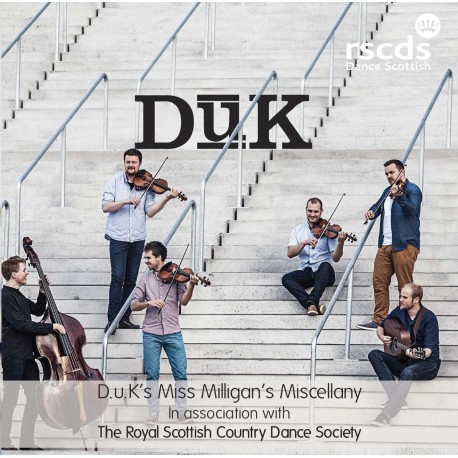DUK'S MISS MILLIGAN'S MISCELLANY - Part 4
Condition: New product
Manufacturer: D.U.K
Danish folk band D.u.K, winners of the 'Dance Music for the Future Competition' produce a set of tunes for eight previously unrecorded Miss Milligan's Miscellany Dances, and also four listening tracks using Nordic tunes
4 Items Available
More info
- Highland Laddie (4x40) Reel
- The Royal Visit (8x32) Jig
- Lady Lucy Ramsay (8x32) Strathspey
- Bromlan/Bøhmerdans/Pirvals Traditional Danish
- Lady Glasgow (8x32) Strathspey
- The Monifieth Star (8x32) Reel
- Æ Lam Traditional Danish
- Schottis Set Traditional Norwegian
- The Seagull (8x32) Jig
- Trinity Hall (8x32) Strathspey
- Valse Set Traditional Danish
- Newington Assembly (8x48) Reel


